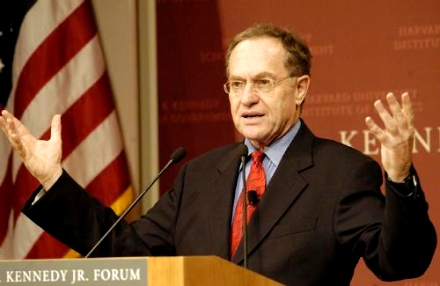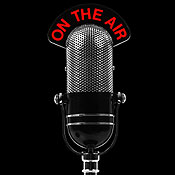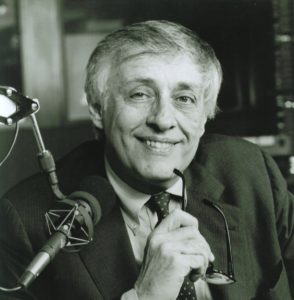

An Anatomy Of Snobbery
With Joe Epstein and John AndersonHaving already done books on most of the negative virtues, Joseph Epstein did another masterwork back in 2002. It was a hilarious analysis of how we try to lord it over one another by faking superior wisdom, importance and influence. Here he joins us together with John Anderson of the Tribune, an expert on “high society,” as they indulge their knowledge of snobology with tales from the front lines of pretention and high arrogance.
An Illustrated History Of The American Musical
With Sheldon PatinkinSheldon Patinkin, a great figure in Chicago theater, knew everything worth knowing about the modern musicals. As he was putting together his great book on the subject, he joined us to talk about Gershwin, George M. Cohan. Rogers and Hammerstein, Sondheim, et al. And he bought along his records and tapes!! Here is our discussion with loads of great American music. The 2007 program is also offered as a commemoration of this great veteran of the Chicago stage – and chairman of the Theater program at Columbia College – who passed away earlier this year.
The Greatest Scientist…
With James Gleick…so far in human history was – most relevant judges would agree – Sir Isaac Newton. He wrote down in a mathematical mode of his own invention (calculus!) some equations which described and predicted accurately how all of the known physical universe works. James Gleick did the great modern biography of Newton and here he is in 2003 in a full discussion of the man who defined the laws of physics when he was 23 years old.
The Father Of “Soft Power”…
With Joseph Nye…as a basic plan for how to direct American foreign policy is Joseph Nye. Here he is in a 2005 conversation with us about how “Hard Power” (i.e. military force) often backfires and undermines American foreign policy intentions. As a man in and out of government and for some years the Dean of the Kennedy School of Government at Harvard, he did not exert much influence during the years of the George W. Bush presidency. Some argue now that he foresaw the mess-to-come in Iraq. When to use soft power and when the hard kind remains a pertinent issue for the two remaining Obama years and well beyond.
Bowling Alone – Or Together?
With Robert PutnamRobert Putnam did the book (yes, “Bowling Alone”) which argued that we were losing our “connectedness” to one another and becoming isolated and selfish individuals. But then, in 2003, he discovered that we were reconnecting in new ways. Here, with a colleague, he explains why and how. As you listen, you might ask yourself whether he described you and yours accurately in his then-new book “Better Together.”

Touring The Muddled, Troubled, Domestic And International Horizons
With Joe Morris, Mary Hartigan, and Richard BaehrThe travelers on this excursion are a former U.S. Assistant Attorney General (Joe Morris), a lawyer and broadcaster focused on “strategic” issues (Mary Hartigan) and the co-founder and Political Editor of The American Thinker (Richard Baehr).
Liberal versus Conservative is the way you classify this sort of discussion but it never – well, hardly ever – describes or predicts the way the discourse will go. These three discussants take on such problems as: the emergence and deep threat of ISIS, white cops and black victims, the legalization of the illegal, the loss of American international “credibility,” the uses of soft and hard power, the future of Obamacare, how the presence of a black President has affected the rage and despair of “ghetto” youth.
Judaism Then And Now
With Daniel Matt, Arthur Green, and Rabbi Yechiel PoupkoThe beginning of modern Judaism can be traced to the crisis of 70 A.D. when the Romans destroyed the Second Temple in Jerusalem. This was the point of transition from priestly to rabbinic Judaism. But as our three truly expert guests explain, the persisting duality between mysticism and rationalism can be found in every stage of the long history. Of special interest in this program is the attention given to the most mysterious of all Judaic scripture: The Kabbalistic Zohar.
Henry Kissinger Asks, “Does America Need A Foreign Policy?”
With Henry KissingerThat was the title of Henry Kissinger’s book published in 2001 and discussed with us in a memorable and far-ranging “tour of the horizon.” Topics included: missile defense, the instability caused by the end of the cold war, the Ruandan genocide, the emergence of modern China, the “dreadful” state of the Middle East at the beginning of the new century and, as a matter of some surprise, the need for less American involvement in world politics. As in an earlier appearance on our program, the clarity and lucidity of his commentary was magisterial.
The Man Who Knew Everything
With Alan JacobsOr, at least, who tried to acquire all important knowledge by reading every word of the Encyclopedia Britannica. This ambitious young fellow, Alan Jacobs, then wrote an amusing book about his project and in 2004 discussed what he had learned while the proprietor challenged the limits of his and the EB’s knowledge. A good time was had by all.
Like Us on Facebook
New title
Latest News

Welcome to The Milt Rosenberg Show
This website is the home of The Milt Rosenberg Show.…
Milt Rosenberg Obituary
Facebook Like Widget
Shows By Topic
Shows by Topic
- arts + letters (84)
- arts+letters (1)
- business (5)
- chicago (10)
- crime (13)
- current events (81)
- economics (18)
- education (18)
- global affairs (105)
- health + healthcare (19)
- history (150)
- humor (18)
- language (14)
- law (7)
- media (28)
- music (5)
- philosophy (19)
- politics (120)
- religion (45)
- science (52)
- social science (22)
- technology (4)



